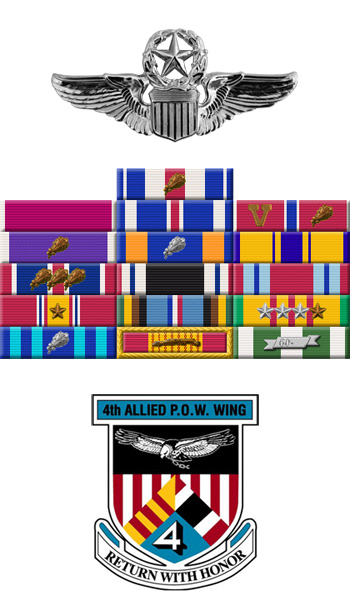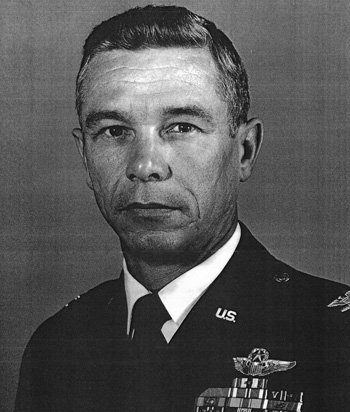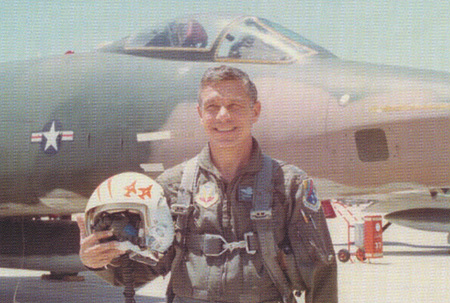
|
George R. Hall |
 |
|||
| Rank, Service | ||||
Colonel O-6, U.S. Air Force |
||||
| Veteran of: | ||||
|
||||
| Tribute: | ||||
George Hall was born on June 18, 1930, in Hattiesburg, Mississippi. He attended the University of Mississippi for a year before entering the U.S. Naval Academy in 1949. Hall graduated and was commissioned a 2d Lt in the U.S. Air Force on June 2, 1953, and then entered Undergraduate Pilot Training, earning his pilot wings at Reese AFB, Texas, in August 1954. His first assignment was flying T-29 Samaritan navigation trainers with the 3566th Navigator Training Group at James Connally AFB, Texas, from August 1954 to April 1958. Hall then served with the 7625th Operations Squadron at the U.S. Air Force Academy and Lowry AFB, Colorado, from April 1958 to August 1962, when he was transferred to the 15th Tactical Reconnaissance Squadron at Kadena AB, Okinawa. Capt Hall began flying combat missions over Vietnam with the 15th TFS in May 1963 and he was forced to eject over North Vietnam after his RF-101 Voodoo took ground fire while flying his 196th combat mission on September 27, 1965. He was immediately captured and spent the next 2,695 days as a Prisoner of War before being released during Operation Homecoming on February 12, 1973. After a brief hospitalization and leave, Col Hall served as an aid to Col John Flynn at Keesler AFB, Mississippi, and then attended Air War College at Maxwell AFB, Alabama. In May 1974, he went through refresher pilot training at Randolph AFB, Texas, and then served as Deputy Commander of Operations for the 67th Tactical Reconnaissance Wing at Bergstrom AFB, Texas, flying the RF-4C Phantom II. Col Hall retired from the Air Force in this position on July 31, 1976. George Hall is married to the former Patsy Jane Stanley of Waco, Texas, and they have three children-Robert, Laura, and Steven. In 2005, George published a book about his experience titled "Commitment to Honor, A Prisoner of War Remembers Vietnam". George Hall died on February 16, 2014, and was buried at Oaklawn Cemetery in Hattiesburg, Mississippi. |
||||
|
||||


